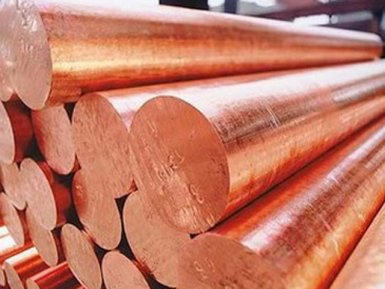Titanium rolling

Are you interested in rolling titanium and titanium alloys from the supplier company AvecGlob? Here you will find interesting information on this topic /
Features of rolling titanium alloys
In the industrial production of titanium plates, sheets, strips and rods, hot and cold rolling technologies are used. Cold rolling of titanium and its alloys is carried out at temperatures when the rate of strain hardening of the material is greater than the rate of recrystallization. When the deformation is carried out above such temperatures, the process is called hot rolling. The main quantity of the titanium plate, sheet, strips and rods is processed using hot rolling methods.
The initial blanks, from the surface of which the metallurgical scale and oxide films are removed, are rolled in the temperature range 730… 815 ° C. This temperature is approximately 110 ° C lower than the forging temperature required for deformation of titanium and titanium alloys. The lower limit of the temperature for hot rolling should not be lower than 595 ° C.
As the thickness of the material to be rolled decreases, the temperature of the heated workpiece / ingot must be significantly reduced in order to minimize surface contamination. When rolling the titanium, a careful choice of technological deformation transitions must be made to obtain a certain degree of deformation.
The continuous sheet and strip are rolled taking into account the optimum friction conditions in the gap between the rolls. Particularly precise adjustments are necessary for rolling thin-rolled steel from titanium and its alloys.
Supplier — AvekGlob Company — offers at affordable prices from the manufacturer various products manufactured using various technologies for rolling titanium alloys. The supplier guarantees the timely delivery of products to any address specified by the consumer.
Equipment for rolling titanium
The peculiarity of the rolling equipment intended for the production of titanium blanks and profiles is the presence in the technological line of induction plants of low or non-oxidative heating, which contributes to the absence of a surface oxide film, which worsens the deformation of titanium alloys.
The following types of rolling mills are used for rolling:
Four-roll, designed to consistently reduce the thickness of the initial workpiece of the machine. With a reduction in the diameter of the roll, the energy capacity of the equipment decreases, and the stability of the dimensions of the final rolled product increases;
With removable moving rollers. In such mills at each position, the main rolls are located above the reserve rolls intended for rolling titanium alloys with increased hardness;
Continuous rolling mill. In them, the rolling speed is synchronized with the angular velocity of rotation of the rolls and their diameter;
Planetary rolling mills. Changing the plane of rotation of the rolls helps improve the quality of the surface of the titanium profile.
Supplier — AvekGlob Company — offers to purchase various designs made using the technology of rolling of titanium alloys. Products can be bought at a price formed on the basis of European and world standards of production. Implementation is possible in bulk and retail, for regular customers, a flexible system of discounts operates.


